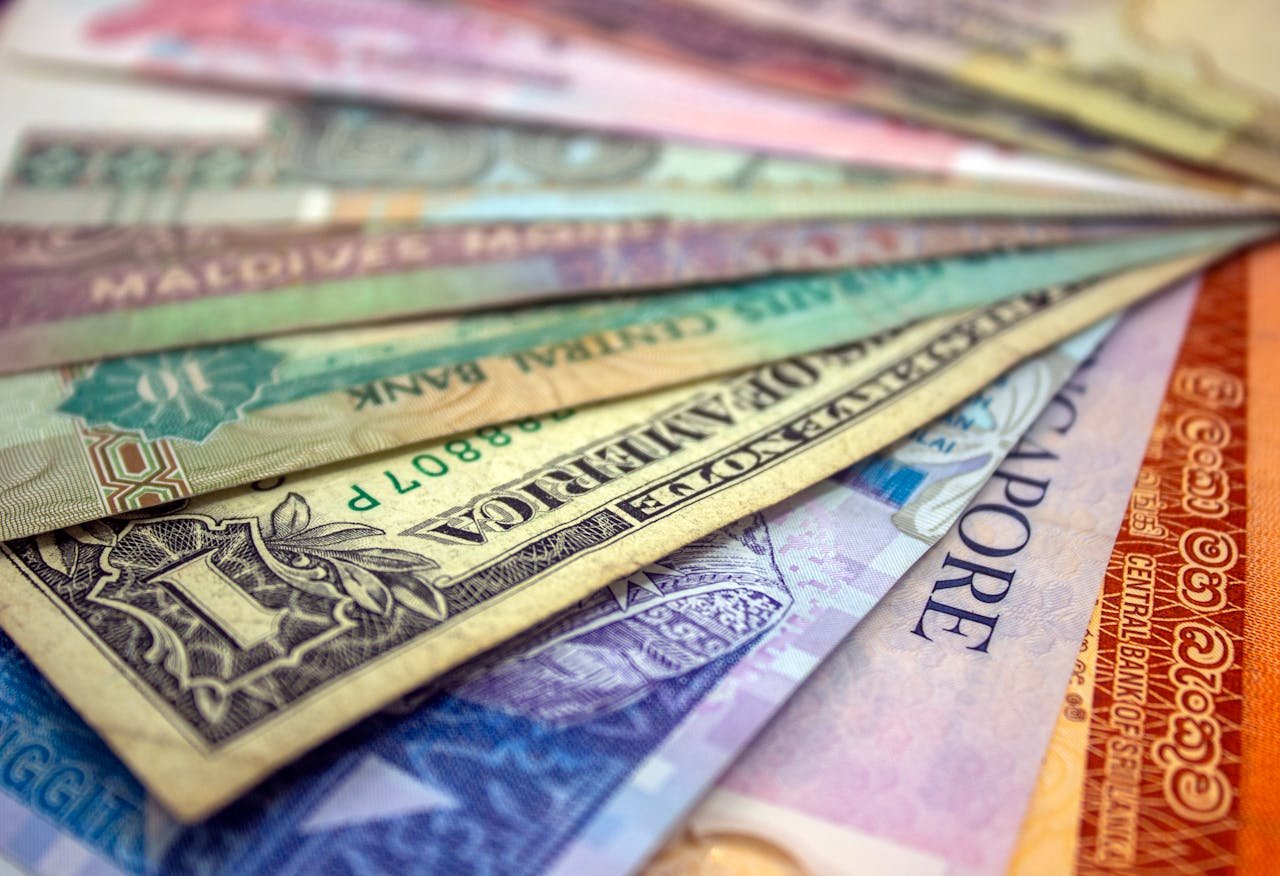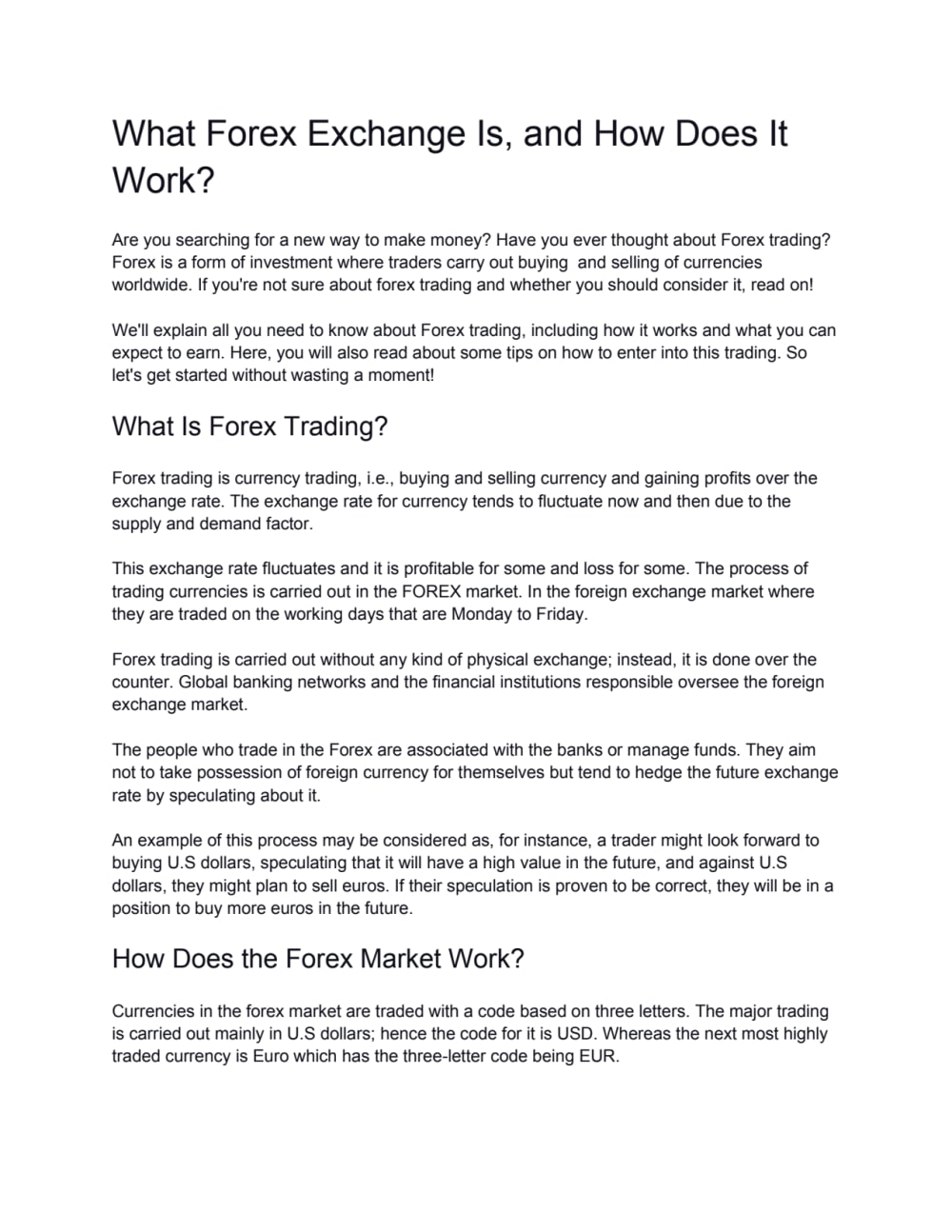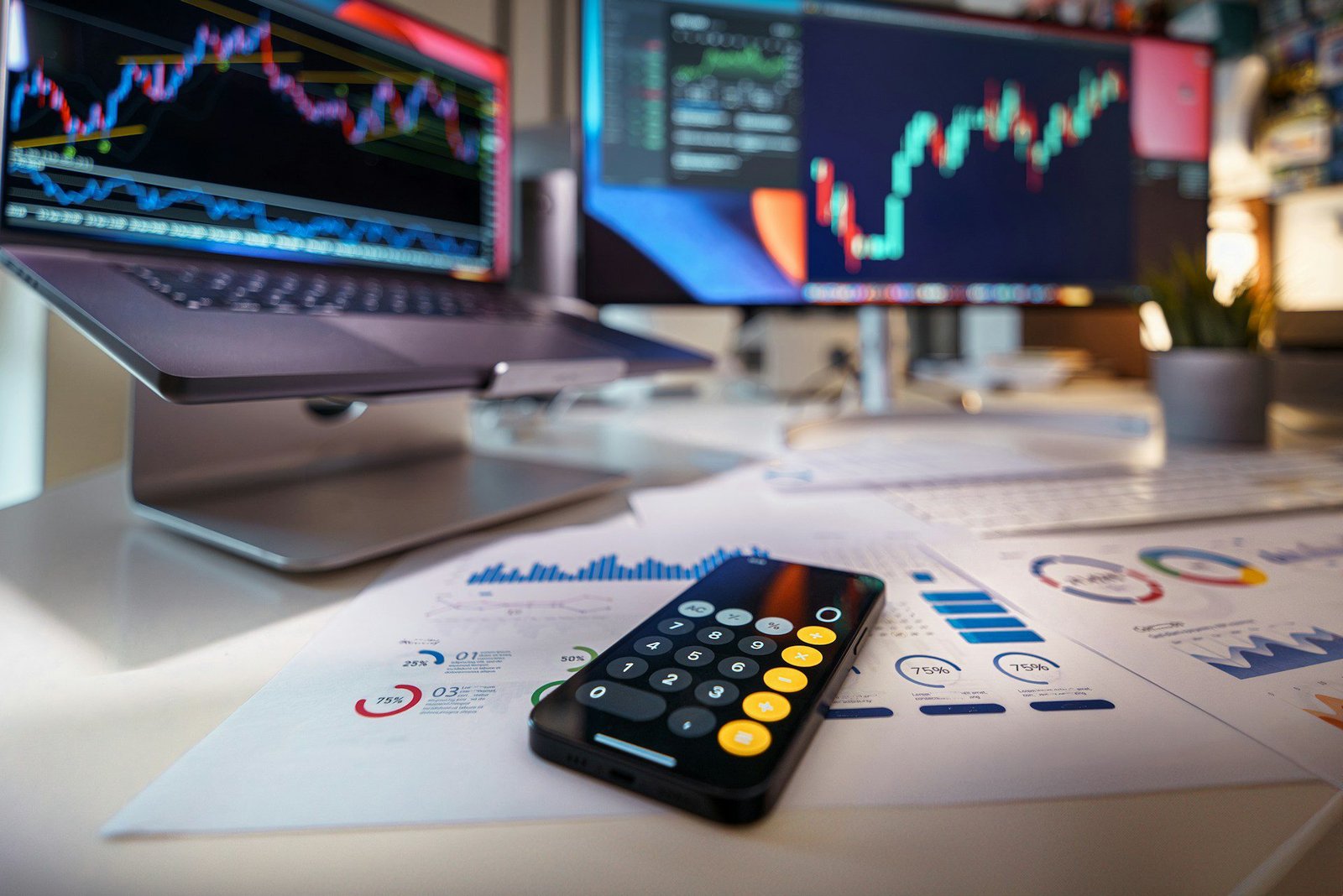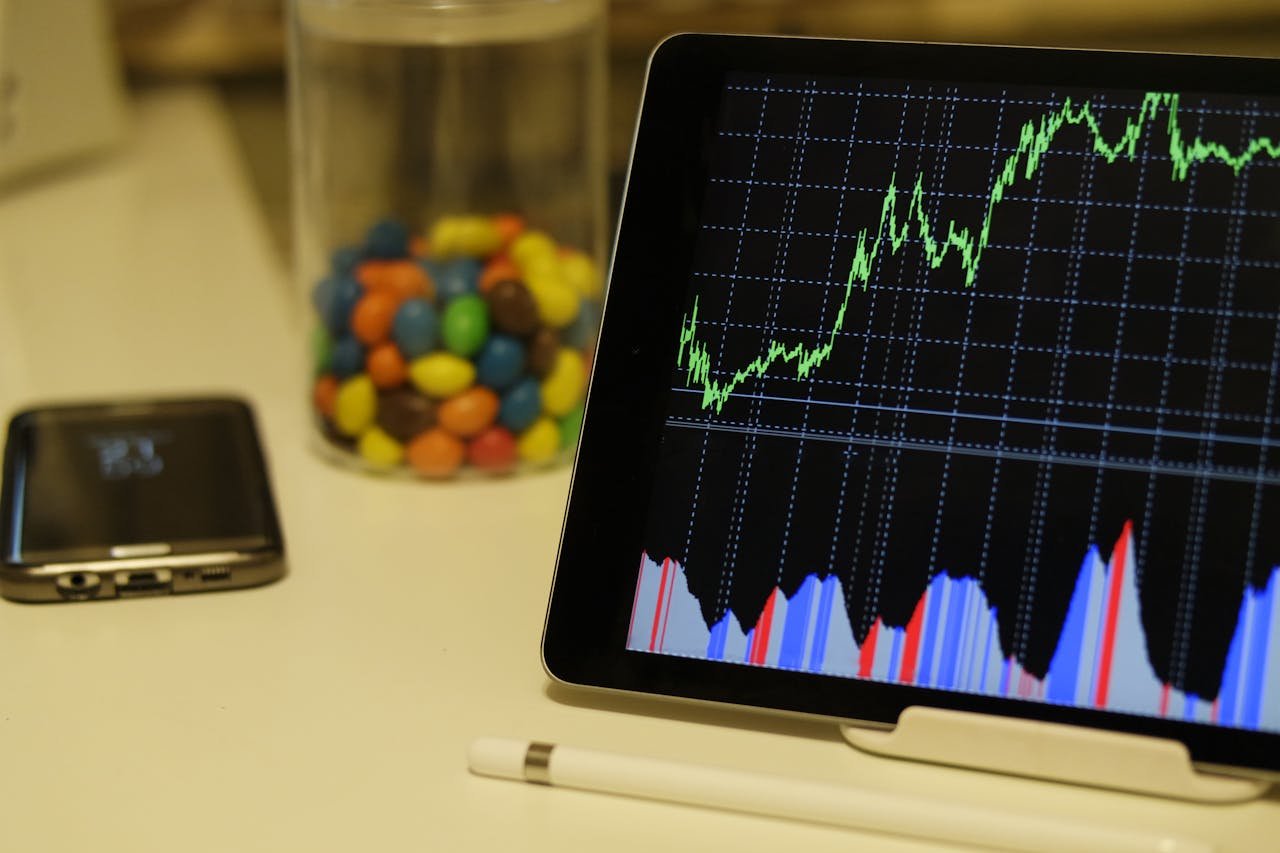How Does the Forex Exchange Work in the USA?
The Forex market in the USA operates through brokers and financial institutions. It allows traders to buy and sell

The Forex market in the USA operates through brokers and financial institutions. It allows traders to buy and sell currency pairs.
The Foreign Exchange (Forex) market is a global marketplace for trading currencies. In the USA, it operates under strict regulations to ensure fair trading practices. Traders use brokers and financial institutions to access the market. The aim is to profit from fluctuations in currency values.
Traders can engage in Forex trading 24 hours a day, five days a week. The USA market is one of the largest, offering high liquidity and numerous trading opportunities. Understanding market trends and using effective strategies are crucial for success. This market attracts both individual and institutional investors due to its potential for high returns.

Forex In The USA
The foreign exchange market, or Forex, is a global market. It allows traders to buy and sell currencies. The USA plays a crucial role in Forex trading. This section will give you an overview of Forex in the USA.
Brief History
Forex trading has a long history in the USA. The Gold Standard Act of 1900 marked the start. This act linked the U.S. dollar to gold. In 1971, the Bretton Woods Agreement ended. This event led to the modern Forex market.
Since then, Forex trading has grown rapidly. The internet era boosted its popularity. Now, many Americans trade Forex daily.
Key Players
Several key players participate in the USA Forex market. These include:
- Major Banks – They facilitate large currency transactions.
- Forex Brokers – They offer trading platforms to individual traders.
- Government Institutions – The Federal Reserve impacts currency values.
- Hedge Funds – They manage large portfolios and influence the market.
Each player contributes to the market’s dynamics. Understanding their roles helps in grasping the Forex market better.
Regulatory Environment
The regulatory environment in the USA plays a crucial role in the forex market. It ensures transparency and fairness, protecting traders and investors. Understanding the key regulatory bodies and important regulations is essential for anyone involved in forex trading in the USA.
Key Regulatory Bodies
In the USA, several regulatory bodies oversee the forex market:
- Commodity Futures Trading Commission (CFTC): Ensures market integrity and protects against fraud.
- National Futures Association (NFA): Self-regulatory organization that enforces ethical standards.
- Securities and Exchange Commission (SEC): Oversees securities markets and protects investors.
Important Regulations
The USA has strict regulations for forex trading. These include:
- Dodd-Frank Act: Imposes restrictions on leverage and requires transparency.
- Registration Requirements: All forex brokers must register with the CFTC and NFA.
- Anti-Money Laundering (AML) Rules: Brokers must follow strict AML guidelines.
These regulations aim to protect traders and ensure market integrity. Compliance with these rules is mandatory for all forex brokers operating in the USA.
Forex Trading Mechanisms
Understanding the mechanisms of forex trading is essential. Forex trading involves the buying and selling of currencies. Traders aim to profit from changes in currency values. Let’s explore key components of forex trading.
Currency Pairs
Forex trading involves trading in currency pairs. A currency pair consists of two currencies. The first currency is the base currency. The second currency is the quote currency.
Here are a few examples of currency pairs:
- EUR/USD
- GBP/JPY
- AUD/CAD
In the EUR/USD pair, EUR is the base currency. USD is the quote currency. Traders predict whether the base currency will rise or fall against the quote currency.
Trading Platforms
Forex trading takes place on electronic trading platforms. These platforms provide tools to trade and analyze markets. Popular platforms include MetaTrader 4 and MetaTrader 5.
Trading platforms offer features such as:
- Real-time quotes
- Charting tools
- Technical analysis
- Automated trading
Using these tools, traders can make informed decisions. Trading platforms also offer demo accounts. These accounts allow beginners to practice trading without real money.
:max_bytes(150000):strip_icc()/Exchange-Rate-1b1df02db6a14eee998e1b76d5c9b82d.jpg)
Market Participants
The Forex market in the USA is diverse. Different players contribute to its dynamic nature. The main participants are retail traders and institutional investors. Understanding who they are can help you navigate the market better.
Retail Traders
Retail traders are individuals who trade currencies for personal profit. They use online platforms to access the Forex market. Their trades are usually smaller compared to institutional investors.
Retail traders often use leverage to increase their trading power. Leverage allows them to control larger positions with a smaller amount of money. This can lead to higher profits but also higher risks.
| Advantages | Disadvantages |
|---|---|
| Access to online platforms | High risk due to leverage |
| Potential for quick profits | Requires constant monitoring |
Institutional Investors
Institutional investors include banks, hedge funds, and large financial firms. They trade large volumes of currencies. This group has a significant influence on the Forex market.
These investors often have more resources and information. They use advanced trading strategies and algorithms. Their trades can move the market significantly.
- Banks: Provide liquidity to the market.
- Hedge Funds: Use complex strategies for profit.
- Financial Firms: Manage large portfolios and diversify investments.
Risks And Rewards
The forex market in the USA offers both risks and rewards. Understanding these can help you make informed trading decisions. Let’s dive into the potential profits and common risks involved in forex trading.
Potential Profits
Forex trading can be highly profitable. Here are some ways you can earn:
- Leverage: You can control a large position with a small amount of capital. This increases potential returns.
- Market Hours: The forex market is open 24 hours a day, five days a week. This allows you to trade anytime.
- Liquidity: The forex market is the most liquid market in the world. You can buy and sell currencies easily.
Common Risks
While there are rewards, there are also risks. Here are some common risks:
- Leverage: While leverage can increase profits, it can also magnify losses.
- Market Volatility: Currency prices can change rapidly. Sudden shifts can lead to significant losses.
- Lack of Knowledge: Without proper understanding, making informed decisions is difficult. This increases the risk of losses.
| Aspect | Potential Profit | Common Risk |
|---|---|---|
| Leverage | Increases returns | Magnifies losses |
| Market Hours | Trade anytime | Overtrading risk |
| Liquidity | Easy transactions | Rapid price changes |
Frequently Asked Questions
Can I Do Forex Trading In The Usa?
Yes, you can do forex trading in the USA. Ensure you use a broker registered with the Commodity Futures Trading Commission (CFTC) and the National Futures Association (NFA) for legal compliance.
Is Forex Trading Legit In Usa?
Yes, forex trading is legal in the USA. Traders must comply with regulations set by the CFTC and NFA.
Do Forex Traders Pay Tax In Usa?
Yes, forex traders in the USA pay taxes. Profits are subject to capital gains tax, either short-term or long-term.
Can I Trade Forex With $100 Dollars?
Yes, you can trade forex with $100. Start with a micro account. Manage risks carefully to avoid significant losses.
Conclusion
Understanding the Forex market in the USA is crucial for successful trading. It operates 24/7 with high liquidity. Knowing the basics can help you navigate better. Stay updated with market trends and regulations. With practice and knowledge, you can maximize your trading potential in the Forex market.














